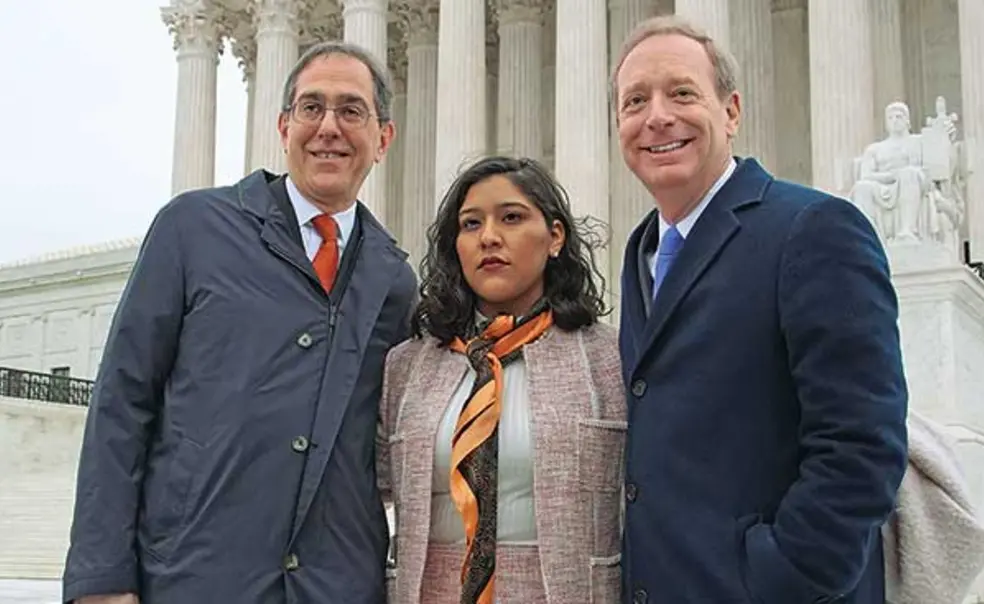President Eisgruber ’83, Maria Perales Sánchez ’18, and Microsoft president Brad Smith ’81, above, spoke on the steps of the U.S. Supreme Court after attending oral arguments Nov. 12 on the University’s legal case to support protections for young undocumented immigrants.
While justices on the court’s conservative majority showed signs of skepticism, Eisgruber remained confident after the hearing. The arguments in court, he said, “were about the importance of the government speaking plainly and honestly in a straightforward way, so that people can hold it accountable for the decisions that it makes, particularly when it affects thousands of people.”
Princeton joined Microsoft and Perales Sánchez in November 2017 in suing the Trump administration, contesting its decision to end the Deferred Action for Childhood Arrivals (DACA) program. The Obama administration created the program in 2012. Participants, including Perales Sánchez, are shielded from deportation and can qualify for other privileges, such as work authorization and driver’s licenses.
Trump administration officials tried to pull the plug on the program in 2017. They argued that the program was illegal, a point fiercely disputed by immigrant advocates. A flurry of lawsuits followed. Lower courts have allowed DACA to continue for existing participants while the cases are litigated.
Eisgruber said it was an “easy decision” to join in the lawsuit two years ago. Perales Sánchez said the support of Princeton and Microsoft “shows how much we are part of this community, how important we are, and how much we are valued.” The court’s ruling is expected by the end of June.












1 Response
Charles Frisbie ’61
6 Years AgoA Threat to Government By Law
Stripped of the various arguments made to persuade the Supreme Court to rule that President Trump may not rescind by executive order the DACA program put in place by an executive order issued by President Obama (President’s Page, Jan. 8, and On the Campus, Dec. 4), what the plaintiffs are asking the court to do is to make a president a king. Mr. Obama said months before issuing the order that he could not change the laws unilaterally. He even stated that he was not a king. Then he proceeded to act like one and issue the order.
Irrespective of the value of the DACA program or of the lack of constitutional authority for the issuance of the order, if it is held that one president cannot rescind the executive order of another president but that it may be rescinded only by statute passed by Congress, then indeed government by law is in dire trouble. And carried to its logical ending, such a ruling would mean that a president may not rescind any executive order ever issued, including one actually issued by him/her.
It is sad to see Princeton joining in an attempt to usurp the powers of Congress.